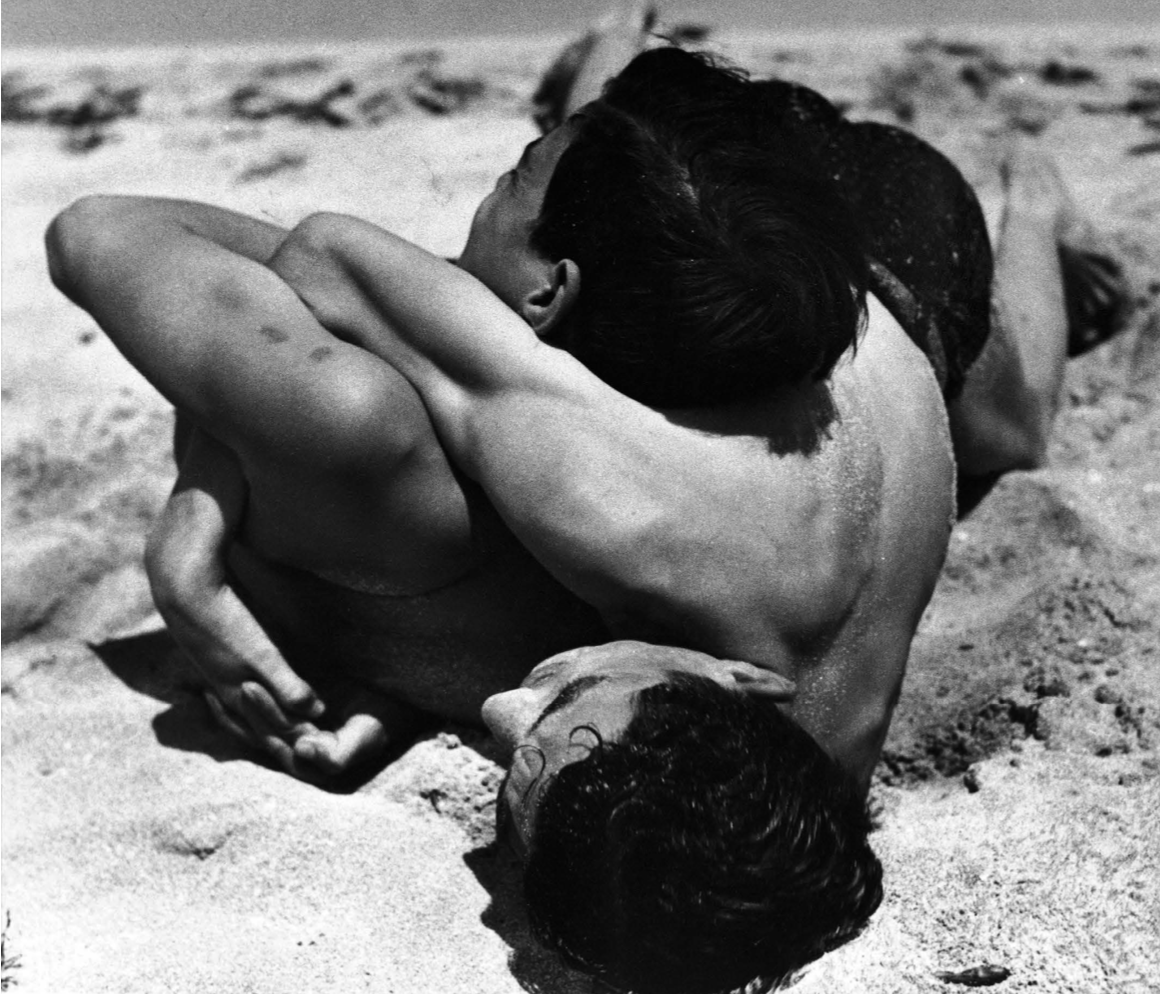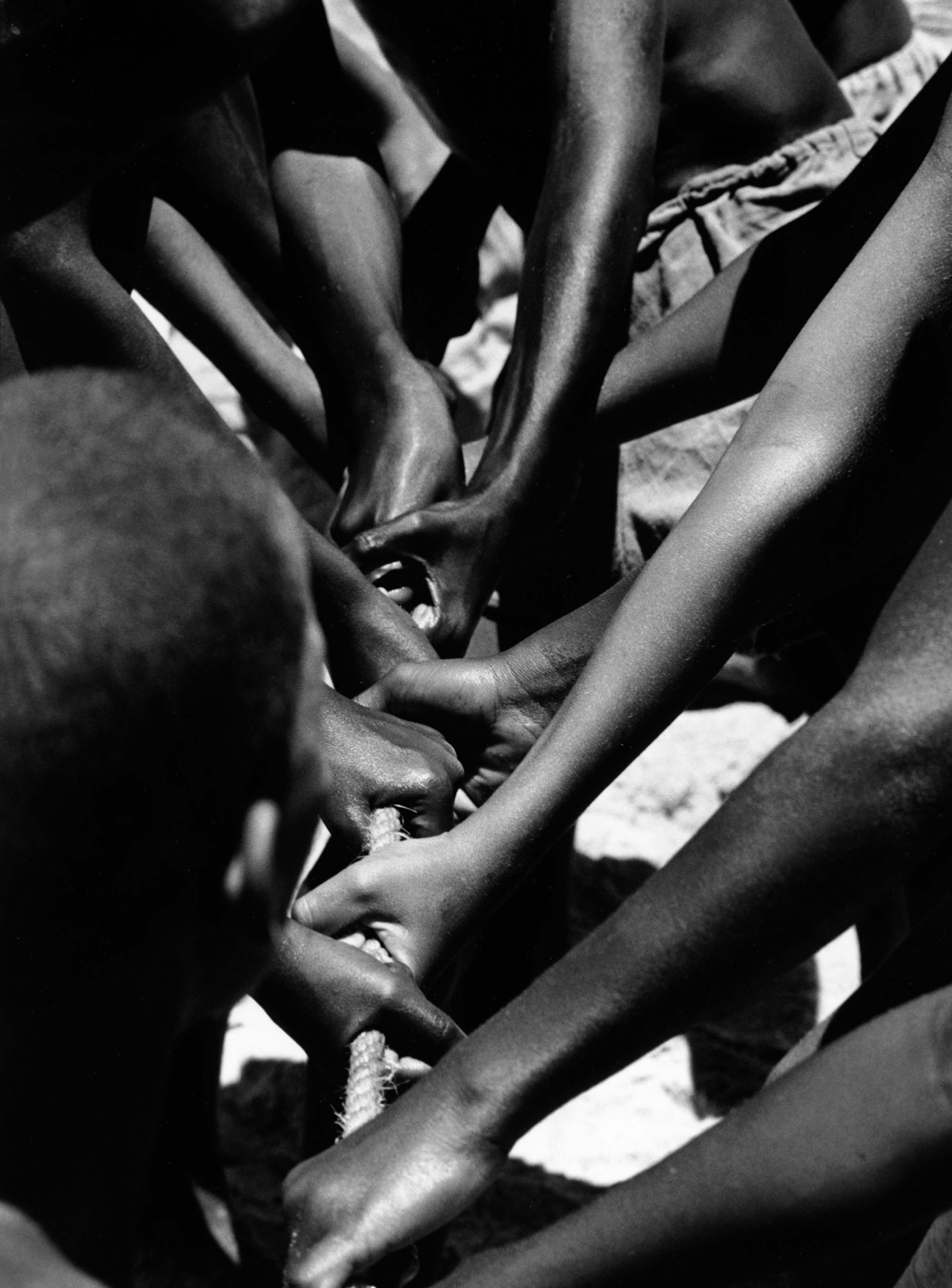Nothing exists without a purpose. Therefore my existence has a purpose. What purpose? I do not know.
Charles Baudelaire, My Heart Laid Bare.
Electra challenged the highly-esteemed Brazilian writer, essayist and university lecturer, Silviano Santiago, to keep a diary for a period of time. In a serene and subtly disenchanted tone, he recorded certain points in his day-to-day life – actions, meetings, reflections, renewed visits to literary works – blending them with the tense political and cultural life of Bolsonaro’s Brazil.
Nothing exists without a purpose. Therefore my existence has a purpose. What purpose? I do not know.
Charles Baudelaire, My Heart Laid Bare.

Herbert List, 1933
© Photo: Magnum Photos
2019
5 september
Last night, my life twisted into a knot. Unprecedentedly. In a few hours and on a single night, my joy and grief, conjoined, were brought down to earth. The knot was tied between 7 pm and 11pm on 4 September. How could it be undone?
In a Rio de Janeiro bookshop, I launched an anthology of essays. In a hospital not too far away from the place where my presence was required, the oldest of my still living friends and colleagues died.
Production of the book wasn’t easy. Declining finances intervened and the book market in Michel Temer and Jair Bolsonaro’s Brazil was bankrupt. The celebration had been scheduled more than a month earlier.
The death of my colleague and friend was expected: he had been ill for some time. His condition had made it difficult for him to work.
In common, we both taught, wrote, and read each other’s work. I should have gone to the hospital. He, to the bookshop. We were out of synch in joy and mourning. The night stretched out its hands, grabbed the loose ends and tied its knot.
Only the coincidence was unpredictable.
I don’t believe in the randomness of fate. A tied knot is meant to have a purpose. A generally ambiguous one. A purpose kept under lock and key. And in its being thus, one must rush backwards. The machinations of fate aren’t last minute. Written down in life’s diary, they await H-Hour. Without arousing suspicions or, to be more accurate, arousing only superficial suspicions, two friends, two separated souls, worked in muffled whispers to achieve this outcome – click! – on 4 September.
The knot’s clearest purpose is the responsibility of another holy trinity – serious error/punishment/atonement. I am being punished for something I should not have done but did. On purpose? Gratuitously? No matter. My punishment arrives on a day of celebration. Hail Marys and the Lord’s Prayer, said on my knees before the real Holy Trinity, miraculously exonerate the sin committed.
In the patriarchal Brazilian family, punishment is the routine cure for injury. In the morning, a son fails to kiss his father’s hand. Outrage. A paternal slap, which punishes and rights the wrong, is just – according to poet Carlos Drummond – a harsher form of the child kissing his father’s hand. The view of the religious triads is to persecute, and its collective reach is extensive.
It’s not hard to envisage other views on the consequences of the knot tied by the night. I submit them to the reader of this diary. If, as an eye or ear witness, I haven’t already done so.
Friendship and camaraderie is the ideal context for coincidence in the unpredictable to reverberate and propagate. Much is subjective in the game of conflicting situations. The knot ‘had been spoken of’ and awaited. Friendship and camaraderie, while words of great spiritual significance, do not soften the low blow of fate – a blow as real as that of a boxer in the ring of life. In truth, concepts stemming from universal fraternity are very effective fertilisers of brave and varied conversations that find their raison d’être, their purpose, in fate. Like Pilate in the Creed, the night propitiates the outcome woven into Biblical parable. In imposing itself, the knot encompasses a collective. The knot. Knots. There were fans in the bookshop and fans in the hospital. Fans interconnected by the predictability of the unpredictable.
A blind knot is the open sesame to the chatty social cavern, where a group of friends and colleagues hide!
If blind, there would be no way to untie the knot. Time is what suddenly unties it. In the dimension of the event, the hypocrisy of social life is elegantly charged with untying it. Game over. Fate’s referee blows his whistle. The intrigues re-begin and the plots take shape. The restart is only different from the start because none of the many people involved is the same as they were. The restart makes everyone similar.
‘– Hypocrite lecteur, – mon semblable, – mon frère!’ Charles Baudelaire.
9 september
Monday. I slept all weekend. I was tired. For no apparent reason.
The final days of last week passed uneventfully. On Thursday, I went to another book launch, at the same place. I told my historian colleague that I felt like a zombie. My body was afflicted by lethargy. I went to my friend and colleague’s wake on Friday. Stripped of the elegance of humour, the twisted gazes at the door to the crematorium, if somewhat dubious, straightened. Nobody likes to be judged morally cross-eyed, after all... Conversations, silence and tears, the usual. I had lunch out with my taxi companion. Fatigued, I opened the door to my flat. I was not eaten away on the outside. I was eaten away on the inside, but not from indigestion of the delicious picanha served at Majórica. I turned on the TV. President Trump says that the black senators in Baltimore are America’s real racists. They are working against their own people. Because of their negligence, he says, Baltimore’s neighbourhoods languish in rat-infested rubble. And he visits the city with a view to garnering the support of Republican politicians in the next presidential elections.
Half asleep, I remembered that Jared Kushner’s family owns a real estate company in Baltimore. In a daydream, the word ‘gentrification’ came to mind and a random piece of verse: ‘Or rat’s feet over broken glass.’
Sleep, only sleep, saves us from anguish, though it only subdues the body when combined with a Stilnox.
I awake from my very restful 48 hours of sleep. I rush over to the bookshelf and pick up the T. S. Eliot I’m looking for. And I highlight a verse from the poem The Hollow Men:
Those who have crossed
With direct eyes, to death’s other Kingdom
Remember us – if at all – not as lost
Violent souls, but only
As the hollow men
The stuffed men.
In the eyes of the other, I cross, hollow, from the brambles to death.
‘Mistah Kurtz – he dead.’ T.S. Eliot borrows one of the epigraphs for The Hollow Men from Joseph Conrad’s novel The Heart of Darkness. I don’t need to take another book from the shelf to add to T.S. Eliot’s verses a phrase by Jean‑Paul Sartre explaining the current penchant for the expression ‘fake news’. I keep it in my memory: ‘I admire the way we can lie, putting reason on our side.’
I’m not sincere. We’re all hypocrites. Am I a cynic by nature? Or perverse? ‘Fernando Pessoa is one of those people who was born a poet,’ I heard Agostinho da Silva say at the beginning of his conference on Pessoa many years ago and thought it amusing. I’m not sincere. Am I Pessoa, the person who was born a writer of fiction? In my favour, I used the pseudonym António Nogueira as a youth.

René Burri, 1967
© Photo: Magnum Photos
12 september
Massage day. The rewards my body receives weekly are due to my cardiologist. On diagnosing my rebellious high blood pressure, he prescribed beta-blockers and recommended bodybuilding. In my dotage, it would never have occurred to me to replace the enchantment and pleasure offered at a mature age by extending one’s body out on a sandy beach on a sunny day for the professional hands of someone else. Ipanema Beach, 1972, Dunas do Barato.
I hire a personal trainer. Mondays, Wednesdays and Fridays: bodybuilding at the gymnastics academy. Thursdays: massage.
In the salutary and hedonistic silence of the massage table, I remember the 1960s, a time when I lived and worked in the USA. In an unknown society, my curiosity was piqued. A reader of newspapers and magazines, I was excited by a remarkable thematic change in investigative journalism, a high point in that country’s press. I didn’t give up books. The crime novelists Dashiell Hammett and Raymond Chandler formed a partnership with the newspapers and weeklies. Non-fiction in one format; fiction in the other. Curiosity bound the reader’s interest and tied the knot.
Suddenly, the knot was undone. New journalists and new writers unexpectedly sparked my interest. I emerged from the pages of politics and crime to submerge myself in the recent long essays by the journalists Gay Talese and Tom Wolfe. They collided with the sensibility of someone born in a peripheral country, until then only reached by the cosmopolitan tentacles of Hollywood. The two journalists abandoned a minefield to enter virgin, slippery and demanding terrain – that of privacy in people’s daily lives. I discovered a modern society in a clear state of ebullience.
In Straight by Day, Swingers by Night, the sociologist Daniel Bell forecast the highly unpromising future of the working class. He bid farewell to Max Weber, the theorist of Anglo-Saxon Protestantism. Despite two Kinsey Reports (1948 and 1953) having uncovered the debauched sex lives of Americans, people’s baptismal names remained shrouded in privacy. Their sexual habits howled in silence and camouflaged the road investigative journalism had to travel. Talese and Wolfe created a genre in which fiction and non-fiction mixed. Truman Capote icily baptised this new genre ‘faction’. Suddenly, people’s Christian names were no longer private.
[...]
Share article